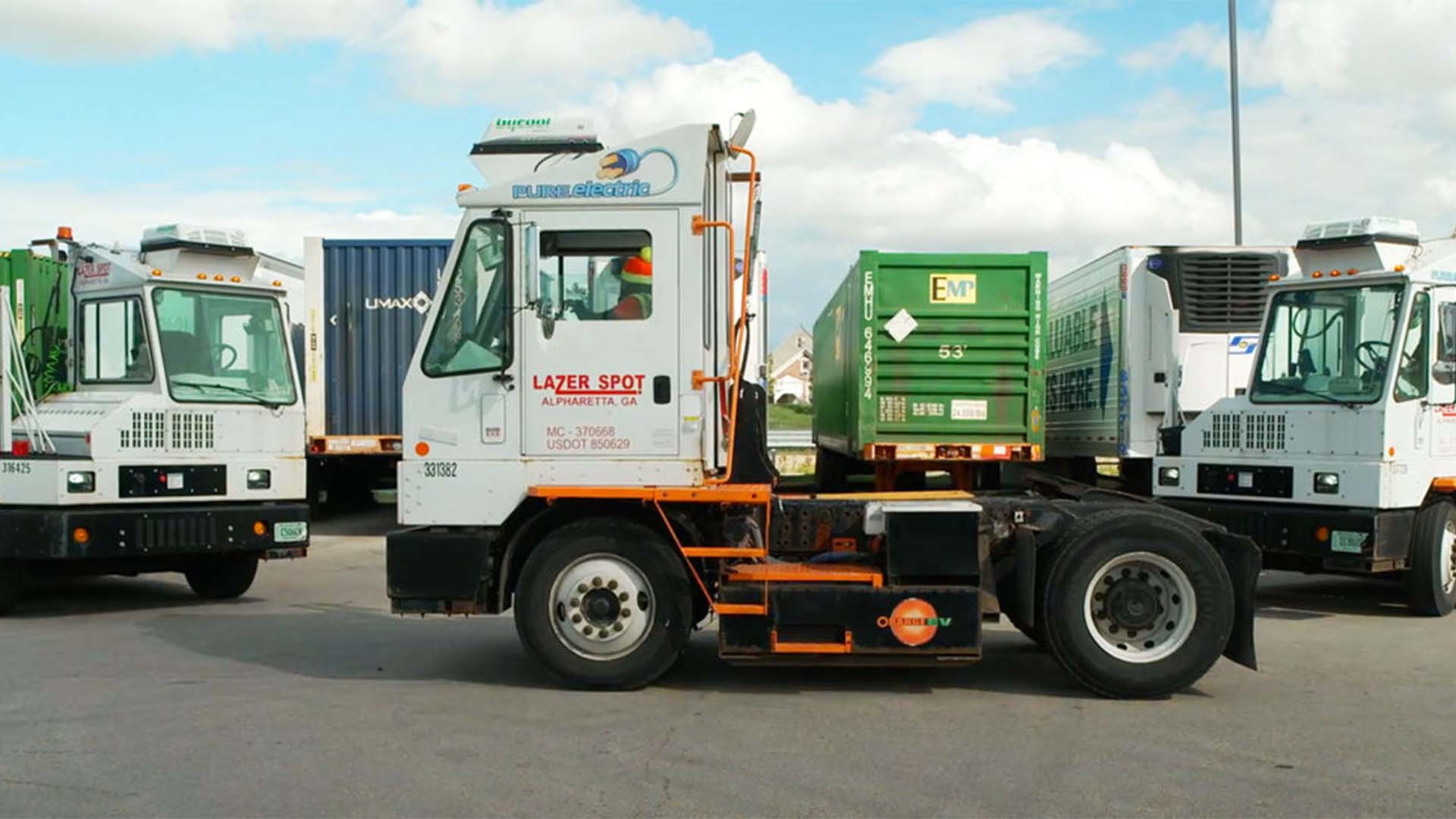The rapidly expanding trade industry has resulted in the growth of many companies. One of these companies is Lazer Spot, the largest provider of yard management solutions in the U.S. and Canada. Lazer Spot specializes in managing manufacturing facilities and distribution centers of all sizes, providing spotting, repositioning, managing, and inventorying services to customers’ yards. To find out more about Lazer Spot’s recent growth, we talked to Lazer Spot’s Chief Commercial Officer, Nick Hannigan, and Chief People Officer, Mesale Solomon-Mendes.

TWT: Lazer Spot was recently named one of the fastest growing companies in Georgia. What do you attribute to this rapid growth?
Nick Hannigan (NH): There isn’t a single factor contributing to our growth, but the combination of efforts really boils down to the fact that Lazer Spot is the only Yard Management company with true local expertise AND a national presence. Given our density in the geographies that we serve, we are able to provide levels of consistent service that others cannot. For customers with a national presence or multiple locations, we are able to standardize our offering across all sites to meet the needs of customers at a corporate level. Our suite of service offerings combined with our analytics capabilities and innovation really separate us from competitors and give confidence to customer to trust us. Finally, managing 400+ sites around the country can often cause disparate outcomes but our great people (read culture) and process really brings it all together.
TWT: How has Lazer Spot altered your culture amid all the growth?
Mesale Solomon-Menes (MSM): The pandemic prompted us to focus on our culture as our sense of community was stripped by shutdowns and travel restrictions. We moved our interaction to digital but felt like we were losing our grip on our people. So, we went to work on exploring our culture on a deep level by listening to our people. Our culture exploration work launched via interviews, focus groups, and surveys where we asked for feedback from across the enterprise cross-functionally and at all levels.
We received feedback that was equal parts pride and a bag of nickels to the face. So, we went to work as a company sharing the feedback, accepting accountability, responsibility, and working on the evolution to a people-first culture. Workstreams were designed to address buckets of challenges that came from the data. We co-created our purpose and values with the leadership of our cross-functional culture drivers’ team and planned management summits to share our discovery with all our managers, starting with the field operations. To date, we have gone in front of all field and corporate managers to share all of the challenges identified and the way forward to address them. We also asked for their buy-in as we embark on our Lazer Journey together.
TWT: Has this evolution been successful?
MSM: We have been humbled by the reception and renewed energy that follows. Though our external challenges continue to levitate around us, we are a stronger company that is determined to keep our eyes on our purpose and deliver on our commitment to our customers and our people.
TWT: What changes has Lazer Spot undergone because of the pandemic? What changes has the industry undergone because of the pandemic?
NH: Given the nature of our business, Lazer Spot has always had a de-centralized business model. So, when the pandemic hit, we were likely ahead of many other companies in experience dealing with the challenges and befits of working remotely while attempting to maintain a strong culture. But, as Mesale mentioned though on the cultural journey, we really had to make it a focal point.
As for the industry, the pandemic really took a secular trend of outsourcing yard management services and accelerated that trend. Companies had to focus internally and on their core service offering. They needed to mitigate supply chain disruptions and manage their yards and facilities more efficiently, with data-driven decision making. Outsourcing to Lazer Spot allows them to focus on those key areas.
TWT: In 2021, the American Trucking Associations estimated that the truck driver shortage hit a historic high of over 80,000 drivers. Has this shortage affected Lazer Spot, and what have you done to combat this?
NH: We are certainly not immune to the challenges in the labor market and specifically the driver shortages. As Mesale mentioned, we’ve spent a tremendous amount of time developing our culture and attempting to be a destination of choice for drivers and corporate employees. You often hear the expression that employees don’t leave bad companies, they leave bad bosses.
So, we’ve invested significantly in developing our site and area managers to really make Lazer Spot a place drivers want to be. Over the years, we’ve shown that Lazer Spot is a great place to make a career as many of our leaders started as drivers and have moved up through the organization. Our purpose statement is that “We deliver exceptional results for our clients so that our people can build a foundation for a great life.” Those aren’t just words. We really do live by that.
Finally, when looking at the broader driver market, we have an advantage in recruiting drivers that may be burned out by driving long haul or regional over-the-road. The vast majority of our drivers are home every night and have consistent, stable pay that doesn’t fluctuate based on the cyclicality of the over-the-road freight market.
TWT: During the pandemic, Lazer Spot also announced its recommitment to reduce vehicle emissions. Can you talk more about what has Lazer Spot done to curb its carbon footprint?
NH: Lazer Spot has the largest fleet of Electric Vehicle yard spotters of any yard management service provider. We have been on the cutting edge of EV, implementing our first EV spotters in 2017. Last year, we acquired a specialized EV provider, Firefly Transportation, to take our expertise and fleet to the next level. By the end of the year, we expect to have 50 EV spotters deployed across the US. Many green initiatives are expensive and not necessarily economically viable. What we are most excited about is that, given our experience with EVs, we’ve proved our economic model while reaping the environmental benefits. In many cases, EVs can actually be financially beneficial to the customer. They experience fewer mechanical issues than diesel, which allows for more uptime for the vehicles. Finally, our drivers love them. They are quieter, don’t get as hot in warm weather climates, and are smoother to operate with less vibration. This helps driver retention, which also improves service to our customers.
We also have advanced telematics, diagnostics, and proprietary predictive maintenance software installed on our entire fleet. This allows us to control idle time, a big contributor to emissions. We estimate our idle time to be around 15%, which is significantly lower than the industry average of 45-50%. Further, this software allows us to be more proactive with maintenance, expanding the life of our spotter vehicles and limiting unplanned downtime.
TWT: What innovations are you most excited about for Lazer Spot?
From EVs to autonomous spotting, optical recognition (for gate check-in and yard inventory management), onboard cameras, and our proprietary YMS (Yard Management System) and fleet software solutions, we really believe we are at the forefront of innovation in our space. Unfortunately, I can’t pick one that is most exciting. We view all of these innovations as core to operating more efficiently and effectively over time and to continuing and accelerating our best-in-class service to customers. In fact, we are so committed to innovation, we even have a VP of Innovation on staff.
For more information about Lazer Spot, watch our full episode HERE or below:







